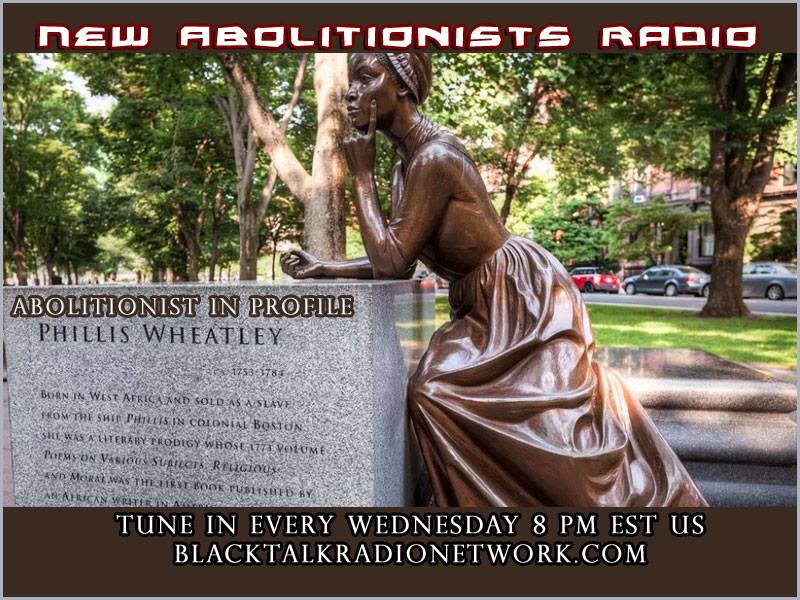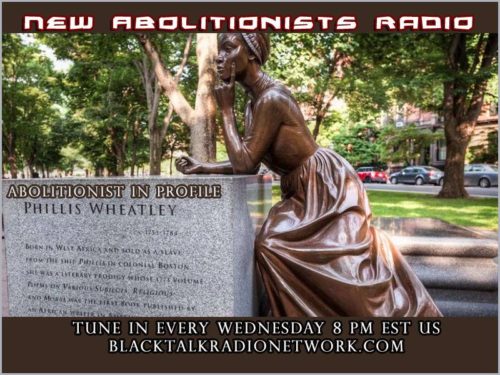
New Abolitionists Radio: US Supreme Court Says Its Legal To Indefinitely Detain Immigrants
Podcast: Play in new window | Download (Duration: 1:56:43 — 53.4MB) | Embed
Subscribe: Email | TuneIn | RSS | More

This is our February 28th, 2018 broadcast in our 6th season of New Abolitionists Radio.
On and near this day in history;
• Phillis Wheatley, the first African-American woman to publish a book, died at the age of 31 on Feb. 28, 1784.
• Also, Florida teenager Trayvon Martin was shot and killed on Feb. 26, 2012.
• Our abolitionist in profile tonight, is, of course, Phillis Wheatley. Anti-slavery poet.
• Born in 1753 in Senegal, Africa, kidnapped by slavers at 7 and died at 31 impoverished in Boston, Massachusetts Feb. 28, 1784.
It is said that Through Phillis Wheatley’s poetry, Wheatley opened the eyes of the people to the intelligence of the African American race, and thus had an everlasting impact on the abolitionist movement in years to come. I have some opinions about that but I’ll save them for later.
• In the segment; “For Freedom’s Sake” A History of rebellion, we remember the first recorded instance of African slaves and European indentured servants standing together for justice against the ruling elite. It led to one of the 1st recorded instances of the slavers used racism as a device for social control. The Gloucester County Conspiracy of September 1st, 1663.
• Our Rider of the 21st-century Underground Railroad is Malcolm Alexander who wrongly served nearly 38 years for a rape that DNA evidence proves he didn’t commit. In January of 2018, a district court judge dismissed the indictment and ordered the release.
• As usual, we’ll dissect and disseminate current news and events related to 13TH amendment slavery from the perspectives of slavery abolitionists.
We’ve got a couple of monumental stories tonight.
• Starting with the first-ever report on the extent and impact of cooperation between courts and the private debt collection industry nationwide, the American Civil Liberties Union found courts in 26 states and Puerto Rico in which judges issued arrest warrants for alleged debtors at the request of private debt collectors.
• Then there is the supreme court ruling that Immigrants can be held by U.S. immigration officials indefinitely without receiving bond hearings.